‘Civil Society Should Focus on Decision-Making Processes and Information Production!’
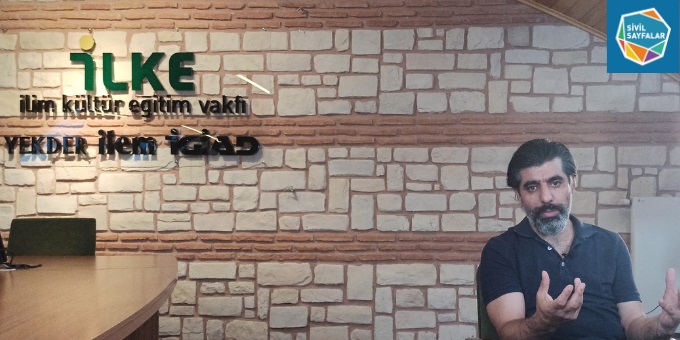
İLKE Foundation Chairman Associate Professor Lütfi Sunar thinks that the presidential system opens up space for civil society as well as expanding the responsibility of civil society. According to Sunar civil society should focus more on decision making processes and information production.
What is the aim of the Agenda of Civil Society in Turkey, which you started publishing a few months ago? What feedbacks have you been receiving?
We think learning from one another is more important in civil society. The aim of the Agenda of Civil Society in Turkey (Türkiye’de Sivil Toplumun Gündemi’nin) is to create a bulletin where CSOs can announce their projects and their wider operations beyond their direct daily activities. What we’ve understood from the feedbacks received on the guide is that we are not aware of the vitality in civil society.
Why did you feel the urge to publish the Bulletin on Intellectual Accumulation From The Muslim World? How are the reactions to this publication?
Bulletin on Intellectual Accumulation From The Muslim World (Müslüman Dünyadan Fikri Birikimler Bülteni) came out of this finding: we live in an unequal world and in an intellectual environment where the Western stands out more. In this bulletin, we focus specifically on the activities of non-profit organizations in the Muslim world. From the reactions to this publication, we’ve understood that everyone knows each other very little. We know little about other Muslim countries, but they know us less. Activities carried out in Turkey reflect less on the world. We are very weak in presenting ourselves in the global world.
How should be the ideal governance system in the civil field?
The most important thing that distinguishes civil society organizations from any institution is starting off with a purpose. The most important dimension of a civil society organization after the purpose is its organizational dimension and its resource dimension. Fourth, the public management communication and interaction of CSOs is important. The reason for the existence of an CSO is to communicate with the public, to have the right interaction…
“Presidential System Is A Model That Opens Up Space For Civil Society”
The Presidential Government System claimed that it would make the governance in Turkey more effective and would clear up the unwieldness of the system. Do you think this claim has come true?
It’s too early to make an evaluation on this. There are various problems in the implementation and operation of the processes in the presidential system. The political environment in Turkey is positioned on “winner takes all”.
When we look at it from the perspective of the civil society, the presidential system is a model that opens up space for civil society. Since this model clarifies the decision-making processes, it makes it possible for CSOs to put more pressure on the relevant institution, since we now know who made which decision better. This expands the space and responsibility of civil society.
In the old model, the voice of civil society faded away in the corridors of the General Assembly. Law-making processes were more complex. In the presidential system, you will pressure the President on an implementation issue, and the Assembly for a legislative transformation. In other words, the interlocutors of civil society have been formed. However, civil society needs to change its way of organization in order to be effective in this system.
How should civil society proceed in the new government system?
Civil society needs to devote more time to producing information as well as to local organization and to public communication.
There needs to be a transition from a sociologist model that produces social services to a civil society focusing on advocacy and knowledge and expertise production.
What kind of an approach and mechanism is needed for the effective participation of civil society in the decision making of local governments? What roles do civil society and local governments have?
In fact, it is much easier for local governments to cooperate with civil society organizations than the central government. In this sense, I think that the support and contributions of municipalities to civil society organizations should be somewhat systematized, they should be recordated as well as being purposeful, targeted and open to competition.
Issue-Oriented Collaborations Should Be Established By Considering the Public Interest!
What should civil society demand first in a government that’s in negotiation with civil the society? What should they negotiate about? What should civil society do?
We have to accept that the civil society field is not a pure and innocent field. Business-oriented, issue-oriented consortia are very weak among us. This is how society perceive it: unity until the end. So why are you together with this organization on this issue? Because we think closely with that organization on that subject, we do not think the same, we think closely. We can act together on this. We may be completely opposite to each other in another matter. Organizations and actors that look after the public interest can consider this in an issue-oriented way and can make collaborations.
Is there a need for a new regulation in the civil field?
Turkey is maybe at the best and the most advanced point that could be reached in terms of civil society organizations legislations. The main problem in Turkey in this field is the implementation problem. We have to deal with the implementation of the existing laws first instead of trying to make new regulations.
What should be done to create an effective public-civil society dialogue?
It is necessary to nurture multilateral participation. What I mean by multilateral participation, is not only the participation of larger organizations with the capacity to trigger public opinion, but also the participation of individual citizens, initiatives and non-formal bodies. Multilateral interaction and communication processes create very important opportunities for public actors. The level of legitimacy of a public authority who can achieve this would increase as well as the trust of the society.
Is there anything else you would like to add?
This is an important issue: how will we increase the general public benefit as civil society? How would we strengthen the weakest of the society, those who are the most distant from information, communication and from defending their rights? If those who act for others have a louder voice, this indicates that the civil society field is functioning correctly. Civil society exists for others. If others are doing well, we can say that civil society is doing well.





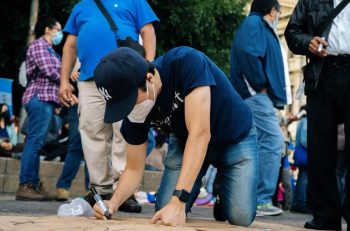
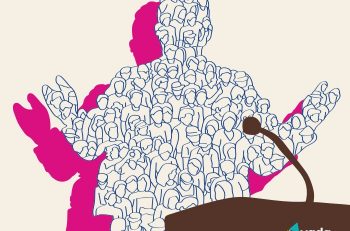


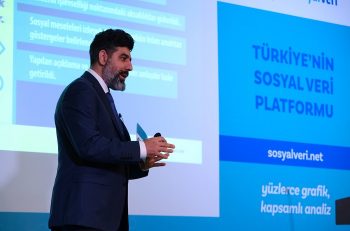


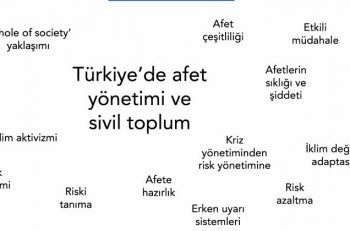
Bizi Takip Edin